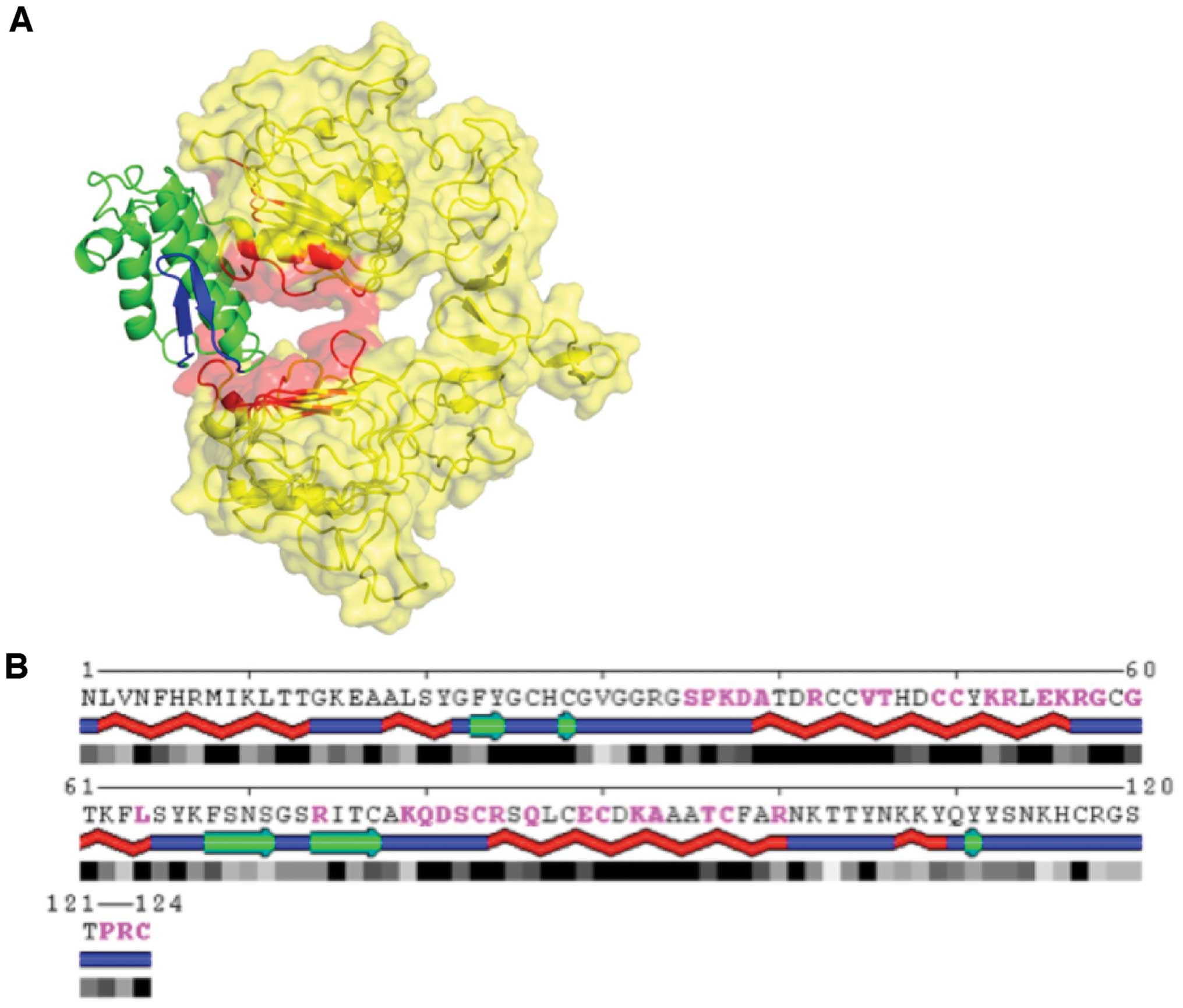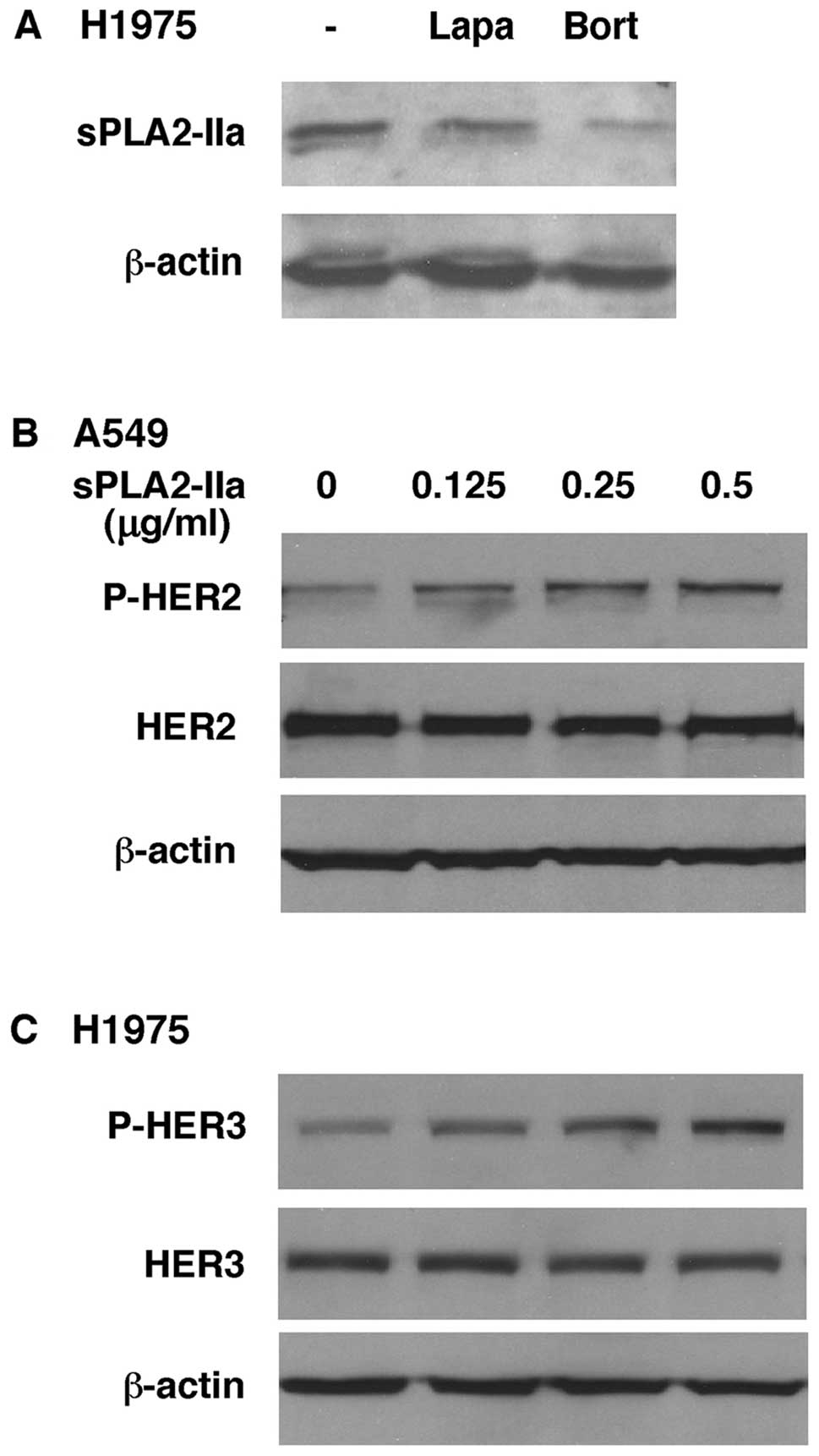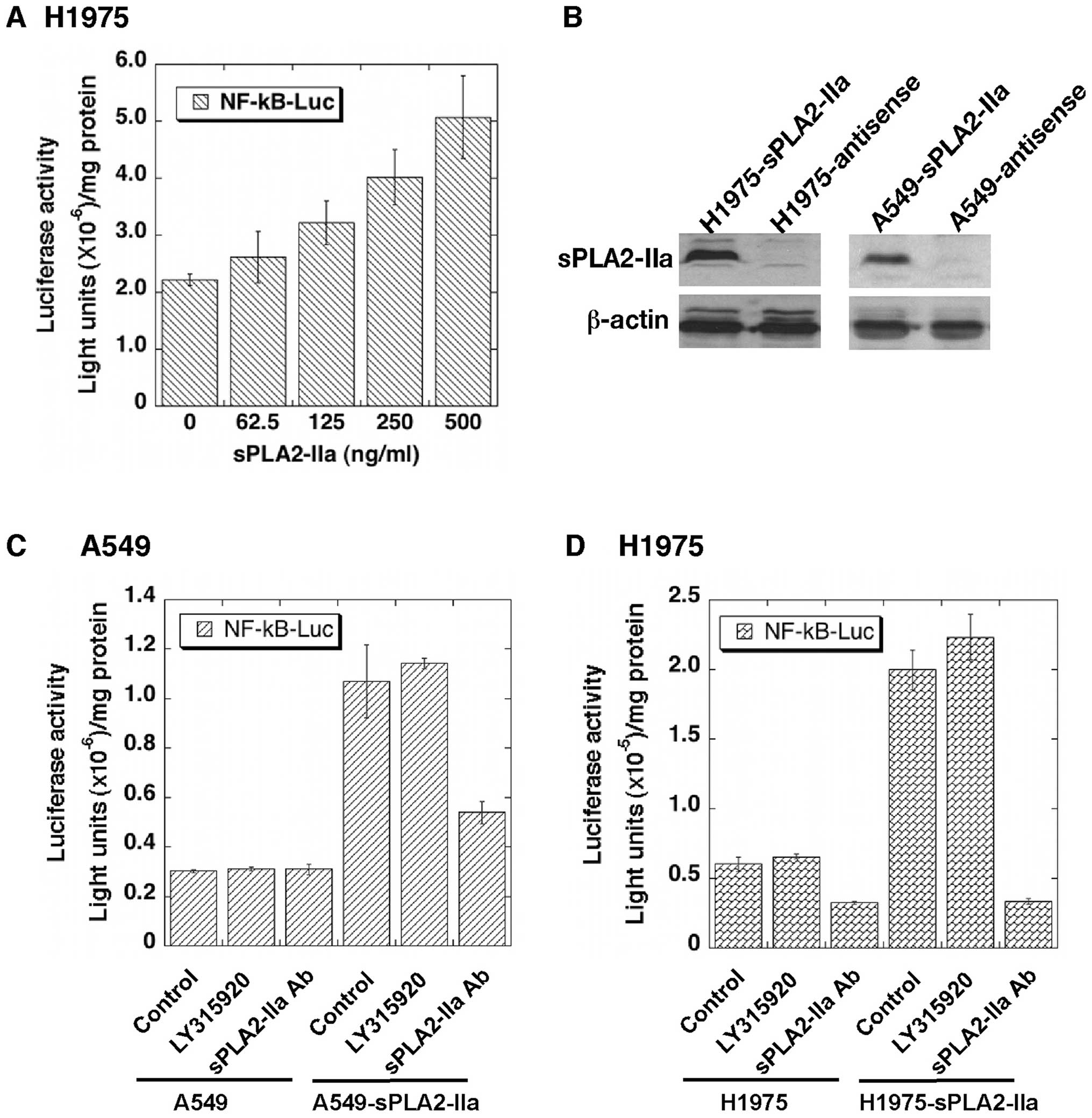|
1
|
Siegel R, Naishadham D and Jemal A: Cancer
statistics, 2012. CA Cancer J Clin. 62:10–29. 2012. View Article : Google Scholar
|
|
2
|
Peters S, Adjei AA, Gridelli C, Reck M,
Kerr K and Felip E: Metastatic non-small-cell lung cancer (NSCLC):
ESMO Clinical Practice Guidelines for diagnosis, treatment and
follow-up. Ann Oncol. 23(Suppl 7): vii56–vii64. 2012. View Article : Google Scholar : PubMed/NCBI
|
|
3
|
Gridelli C, Ardizzoni A, Douillard JY, et
al: Recent issues in first-line treatment of advanced
non-small-cell lung cancer: Results of an International Expert
Panel Meeting of the Italian Association of Thoracic Oncology. Lung
Cancer. 68:319–331. 2010. View Article : Google Scholar
|
|
4
|
Pisters KM, Evans WK, Azzoli CG, et al:
Cancer Care Ontario and American Society of Clinical Oncology
adjuvant chemotherapy and adjuvant radiation therapy for stages
I–IIIA resectable non small-cell lung cancer guideline. J Clin
Oncol. 25:5506–5518. 2007.PubMed/NCBI
|
|
5
|
Goffin J, Lacchetti C, Ellis PM, Ung YC
and Evans WK: First-line systemic chemotherapy in the treatment of
advanced non-small cell lung cancer: a systematic review. J Thorac
Oncol. 5:260–274. 2010. View Article : Google Scholar : PubMed/NCBI
|
|
6
|
Cataldo VD, Gibbons DL, Perez-Soler R and
Quintas-Cardama A: Treatment of non-small-cell lung cancer with
erlotinib or gefitinib. New Engl J Med. 364:947–955. 2011.
View Article : Google Scholar : PubMed/NCBI
|
|
7
|
Gazdar AF: Epidermal growth factor
receptor inhibition in lung cancer: the evolving role of
individualized therapy. Cancer Metastasis Rev. 29:37–48. 2010.
View Article : Google Scholar : PubMed/NCBI
|
|
8
|
Tsao MS, Sakurada A, Cutz JC, et al:
Erlotinib in lung cancer - molecular and clinical predictors of
outcome. New Engl J Med. 353:133–144. 2005. View Article : Google Scholar : PubMed/NCBI
|
|
9
|
Munoz M, Henderson M, Haber M and Norris
M: Role of the MRP1/ABCC1 multidrug transporter protein in cancer.
IUBMB Life. 59:752–757. 2007. View Article : Google Scholar : PubMed/NCBI
|
|
10
|
Modok S, Mellor HR and Callaghan R:
Modulation of multidrug resistance efflux pump activity to overcome
chemoresistance in cancer. Curr Opin Pharmacol. 6:350–354. 2006.
View Article : Google Scholar : PubMed/NCBI
|
|
11
|
Detterbeck FC, Boffa DJ and Tanoue LT: The
new lung cancer staging system. Chest. 136:260–271. 2009.
View Article : Google Scholar
|
|
12
|
Henschke CI, McCauley DI, Yankelevitz DF,
et al: Early Lung Cancer Action Project: overall design and
findings from baseline screening. Lancet. 354:99–105. 1999.
View Article : Google Scholar : PubMed/NCBI
|
|
13
|
Wahidi MM, Govert JA, Goudar RK, Gould MK
and McCrory DC: Evidence for the treatment of patients with
pulmonary nodules: when is it lung cancer?: ACCP evidence-based
clinical practice guidelines (2nd edition). Chest. 132:94S–107S.
2007. View Article : Google Scholar
|
|
14
|
Starnes SL, Reed MF, Meyer CA, et al: Lung
cancer screening with low-dose CT in an area endemic for
Histoplasma Capsulatum: minimizing invasive procedures for
benign nodules. J Thorac Cardiovasc Surg. 141:688–693. 2011.
View Article : Google Scholar : PubMed/NCBI
|
|
15
|
Team TNLSTR. Reduced lung-cancer mortality
with low-dose computed tomographic screening. New Engl J Med.
365:395–409. 2011. View Article : Google Scholar : PubMed/NCBI
|
|
16
|
Lederle FA and Niewoehner DE: Lung cancer
surgery. A critical review of the evidence. Arch Intern Med.
154:2397–2400. 1994. View Article : Google Scholar : PubMed/NCBI
|
|
17
|
Cummings BS: Phospholipase A2 as targets
for anti-cancer drugs. Biochem Pharmacol. 74:949–959. 2007.
View Article : Google Scholar : PubMed/NCBI
|
|
18
|
Lambeau G and Lazdunski M: Receptors for a
growing family of secreted phospholipases A2. Trends Pharmacol Sci.
20:162–170. 1999. View Article : Google Scholar : PubMed/NCBI
|
|
19
|
Antonio V, Brouillet A, Janvier B, et al:
Transcriptional regulation of the rat type IIA phospholipase A2
gene by cAMP and interleukin-1beta in vascular smooth muscle cells:
interplay of the CCAAT/enhancer binding protein (C/EBP), nuclear
factor-kappaB and Ets transcription factors. Biochem J.
368:415–424. 2002. View Article : Google Scholar
|
|
20
|
Dong Z, Liu Y, Scott KF, et al: Secretory
phospholipase A2-IIa is involved in prostate cancer progression and
may potentially serve as a biomarker for prostate cancer.
Carcinogenesis. 31:1948–1955. 2010. View Article : Google Scholar : PubMed/NCBI
|
|
21
|
Triggiani M, Granata F, Giannattasio G and
Marone G: Secretory phospholipases A2 in inflammatory and allergic
diseases: not just enzymes. Journal Allergy Clin Immunol.
116:1000–1006. 2005. View Article : Google Scholar : PubMed/NCBI
|
|
22
|
Meyer AM, Dwyer-Nield LD, Hurteau GJ, et
al: Decreased lung tumorigenesis in mice genetically deficient in
cytosolic phospholipase A2. Carcinogenesis. 25:1517–1524. 2004.
View Article : Google Scholar : PubMed/NCBI
|
|
23
|
Kupert E, Anderson M, Liu Y, et al: Plasma
secretory phospholipase A2-IIa as a potential biomarker for lung
cancer in patients with solitary pulmonary nodules. BMC Cancer.
11:5132011. View Article : Google Scholar : PubMed/NCBI
|
|
24
|
Lu S, Tsai SY and Tsai MJ: Molecular
mechanisms of androgen-independent growth of human prostate cancer
LNCaP-AI cells. Endocrinology. 140:5054–5059. 1999.PubMed/NCBI
|
|
25
|
Oleksowicz L, Liu Y, Bracken RB, et al:
Secretory phospholipase A2-IIa is a target gene of the
HER/HER2-elicited pathway and potential plasma biomarker for poor
prognosis of prostate cancer. Prostate. 72:1140–1149. 2012.
View Article : Google Scholar : PubMed/NCBI
|
|
26
|
Schulze WX, Deng L and Mann M:
Phosphotyrosine interactome of the ErbB-receptor kinase family. Mol
Syst Biol. 1:2005.00082005. View Article : Google Scholar
|
|
27
|
Hsieh AC and Moasser MM: Targeting HER
proteins in cancer therapy and the role of the non-target HER3. Br
J Cancer. 97:453–457. 2007. View Article : Google Scholar : PubMed/NCBI
|
|
28
|
Lovly CM and Carbone DP: Lung cancer in
2010: One size does not fit all. Nat Rev Clin Oncol. 8:68–70. 2011.
View Article : Google Scholar : PubMed/NCBI
|
|
29
|
Davies AM, Lara PN Jr, Mack PC and Gandara
DR: Incorporating bortezomib into the treatment of lung cancer.
Clin Cancer Res. 13:s4647–s4651. 2007. View Article : Google Scholar : PubMed/NCBI
|
|
30
|
Engelman JA and Cantley LC: The role of
the ErbB family members in non-small cell lung cancers sensitive to
epidermal growth factor receptor kinase inhibitors. Clin Cancer
Res. 12:4372s–4376s. 2006. View Article : Google Scholar
|
|
31
|
Tas SW, Vervoordeldonk MJ and Tak PP: Gene
therapy targeting nuclear factor-kappaB: towards clinical
application in inflammatory diseases and cancer. Curr Gene Ther.
9:160–170. 2009. View Article : Google Scholar : PubMed/NCBI
|
|
32
|
Escobar M, Velez M, Belalcazar A, Santos
ES and Raez LE: The role of proteasome inhibition in nonsmall cell
lung cancer. J Biomed Biotechnol. 2011:8065062011. View Article : Google Scholar : PubMed/NCBI
|
|
33
|
Sved P, Scott KF, McLeod D, et al:
Oncogenic action of secreted phospholipase A2 in prostate cancer.
Cancer Res. 64:6934–6940. 2004. View Article : Google Scholar : PubMed/NCBI
|
|
34
|
Patel MI, Singh J, Niknami M, et al:
Cytosolic phospholipase A2-alpha: a potential therapeutic target
for prostate cancer. Clin Cancer Res. 14:8070–8079. 2008.
View Article : Google Scholar : PubMed/NCBI
|
|
35
|
Belinsky GS, Rajan TV, Saria EA, Giardina
C and Rosenberg DW: Expression of secretory phospholipase A2 in
colon tumor cells potentiates tumor growth. Mol Carcinog.
46:106–116. 2007. View
Article : Google Scholar : PubMed/NCBI
|
|
36
|
Mulherkar R, Kirtane BM, Ramchandani A,
Mansukhani NP, Kannan S and Naresh KN: Expression of enhancing
factor/phospholipase A2 in skin results in abnormal epidermis and
increased sensitivity to chemical carcinogenesis. Oncogene.
22:1936–1944. 2003. View Article : Google Scholar
|
|
37
|
Hernandez M, Martin R, Garcia-Cubillas MD,
Maeso-Hernandez P and Nieto ML: Secreted PLA2 induces proliferation
in astrocytoma through the EGF receptor: another
inflammation-cancer link. Neuro Oncol. 12:1014–1023. 2010.
View Article : Google Scholar : PubMed/NCBI
|
|
38
|
Martin R, Hernandez M, Ibeas E, et al:
Secreted phospholipase A2-IIA modulates key regulators of
proliferation on astrocytoma cells. J Neurochem. 111:988–999. 2009.
View Article : Google Scholar : PubMed/NCBI
|
|
39
|
Narayanan BA, Narayanan NK, Pittman B and
Reddy BS: Regression of mouse prostatic intraepithelial neoplasia
by nonsteroidal anti-inflammatory drugs in the transgenic
adenocarcinoma mouse prostate model. Clin Cancer Res. 10:7727–7737.
2004. View Article : Google Scholar
|
|
40
|
Kobayashi N, Barnard RJ, Henning SM, et
al: Effect of altering dietary omega-6/omega-3 fatty acid ratios on
prostate cancer membrane composition, cyclooxygenase-2, and
prostaglandin E2. Clin Cancer Res. 12:4662–4670. 2006. View Article : Google Scholar
|
|
41
|
Dong Z, Liu Y, Levin L, Oleksowicz L, Wang
J and Lu S: Vav3 oncogene is involved in regulation of secretory
phospholipase A2-IIa expression in prostate cancer. Oncol Rep.
25:1511–1516. 2011.
|
|
42
|
Granata F, Frattini A, Loffredo S, et al:
Production of vascular endothelial growth factors from human lung
macrophages induced by group IIA and group X secreted
phospholipases A2. J Immunol. 184:5232–5241. 2010. View Article : Google Scholar
|
|
43
|
Baek SH, Lim JH, Park DW, et al: Group IIA
secretory phospholipase A(2) stimulates inducible nitric oxide
synthase expression via ERK and NF-kappaB in macrophages. Eur J
Immunol. 31:2709–2717. 2001. View Article : Google Scholar : PubMed/NCBI
|
|
44
|
Park DW, Kim JR, Kim SY, et al: Akt as a
mediator of secretory phospholipase A2 receptor-involved inducible
nitric oxide synthase expression. J Immunol. 170:2093–2099. 2003.
View Article : Google Scholar : PubMed/NCBI
|
|
45
|
Ibeas E, Fuentes L, Martin R, Hernandez M
and Nieto ML: Inflammatory protein sPLA(2)-IIA abrogates
TNFalpha-induced apoptosis in human astroglioma cells: Crucial role
of ERK. Biochim Biophys Acta. 1793:1837–1847. 2009. View Article : Google Scholar
|
|
46
|
Scott KF, Sajinovic M, Hein J, et al:
Emerging roles for phospholipase A2 enzymes in cancer. Biochimie.
92:601–610. 2010. View Article : Google Scholar : PubMed/NCBI
|
|
47
|
Valentin E and Lambeau G: Increasing
molecular diversity of secreted phospholipases A(2) and their
receptors and binding proteins. Biochim Biophys Acta. 1488:59–70.
2000. View Article : Google Scholar : PubMed/NCBI
|
|
48
|
Hernandez M, Burillo SL, Crespo MS and
Nieto ML: Secretory phospholipase A2 activates the cascade of
mitogen-activated protein kinases and cytosolic phospholipase A2 in
the human astrocytoma cell line 1321N1. J Biol Chem. 273:606–612.
1998. View Article : Google Scholar
|
|
49
|
Yu JA, Mauchley D, Li H, et al: Knockdown
of secretory phospholipase A2 IIa reduces lung cancer growth in
vitro and in vivo. J Thorac Cardiovasc Surg. 144:1185–1191. 2012.
View Article : Google Scholar : PubMed/NCBI
|

















